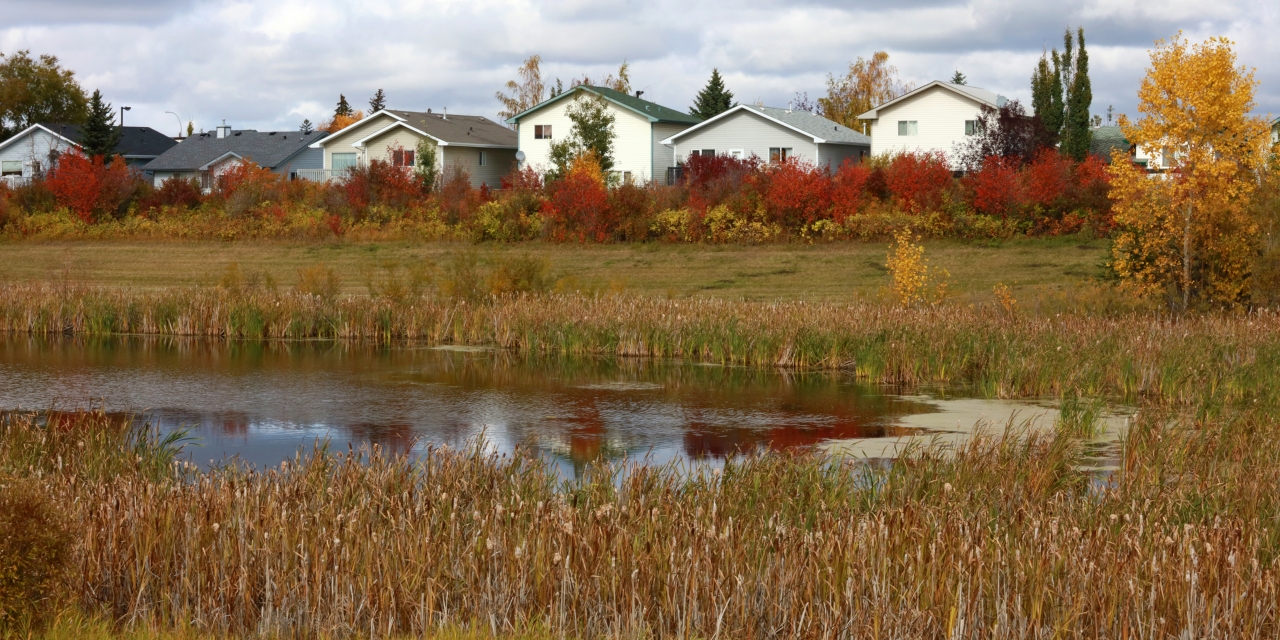Albertans need to start seeing biodiversity as a local priority, University of Alberta researchers say.
In a new report supported by the Alberta Real Estate Foundation, associate professor of law Cameron Jefferies and Erin Sawyer, a research assistant with the Alberta Land Institute, argue that growing global concerns about habitat and biodiversity loss need to filter down to the level where Alberta's municipalities and citizens can play a pivotal role in making the connections between neighbourhoods, communities and nature.
"We should be thinking about our municipal environments as part of the ecosystem," said Jefferies, who specializes in environmental law. "Infrastructure isn't just the built environment, it's also the tree canopy and the water system."
Building on the principle that communities feel the effects of biodiversity loss most closely, Jeffries and Sawyer argue that local governments have multiple legal tools and tactics to protect sensitive areas, create adaptation plans and encourage citizens to take up conservation in their backyards. The reasons for doing so, Jefferies added, go beyond the satisfaction of living near nature.
"We get a lot from our environment. We get more than we think," said Jeffries. "At the end of the day, so much of our food comes from pollination. So much comes from the ecosystems that are buffering our environment for us."
In 2018, Jefferies was awarded a grant to work with the Alberta Land Institute to write a report looking into the environmental implications of recent changes to the Municipal Government Act. The Government of Alberta modernized its legislation governing municipalities, and among the changes were broader powers and expectations for municipalities to pursue and enhance environmental protection.
Since then, a new government has shifted budget priorities, but Jefferies argues that the biodiversity question must not be lost.
Communities can still use conservation offsets and land trading to focus development where it has the least impact, or to shift to higher density planning to consume less land and concentrate resources. Bylaws could be put in place to protect trees on private properties or to encourage the use of green roofs, steps that can keep wildlife corridors intact.
"If we don't build resilient communities, we're going to have more repair costs," Jefferies said. "There's consequences to insurance, to taxes. There's consequences to property loss, to damage."
A bigger emphasis on biodiversity could enhance quality of life at a local level, Jefferies said. The City of Edmonton, for instance, looks at wildlife corridors when planning transportation projects, recognizing that a poorly planned road or bridge can isolate wildlife populations.
Jefferies hopes the new report can spark conversations, provide ideas for municipalities and inspire regional collaboration. But a bigger goal is for broader public engagement around the need to take biodiversity out of nature documentaries and into local contexts. Jefferies and Sawyer's team is working on brochures to help Albertans see conservation opportunities in their backyards.
While Jefferies said he is hopeful that municipalities will take initiative and support biodiversity, he also envisions an opposite scenario, in which more is expected from local governments without a corresponding degree of financial or regulatory support. He hopes the new report offers municipalities some options for moving forward.
"Funding is always going to be a difficult issue," he said. "If you get that new responsibility but you don't get an associated funding boost, then how do you actually achieve some of those goals?"
